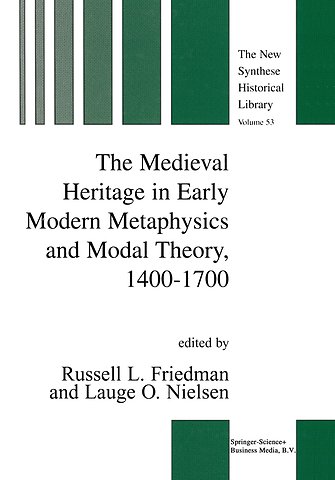1. Introduction. 2. Via Antiqua and Via Moderna in the Fifteenth Century: Doctrinal, Institutional, and Church Political Factors in the Wegestreit; M.J.F.M. Hoenen. 3. Ockham and Locke on Mental Language; C. Panaccio. 4. Metaphysics as a Discipline: From the 'Transcendental Philosophy of the Ancients' to Kant's Notion of Transcendental Philosophy; L. Honnefelder. 5. God as First Principle and Metaphysics as a Science; J. Biard. 6. Gabriel Biel and Later-Medieval Trinitarian Theology; R.L. Friedman. 7. The Question of the Validity of Logic in Late Medieval Thought; S. Knuuttila. 8. Uses of Philosophy in Reformation Thought: Melanchthon, Schegk, and Crellius; S. Kusukawa. 9. Divine Foreknowledge and Human Freedom: Auriol, Pomponazzi, and Luther on 'Scholastic Subtleties'; C. Schabel. 10. The Ontological Source of Logical Possibility in Catholic Second Scholasticism; J. Coombs. 11. The Renaissance of Statistical Modalities in Early Modern Scholasticism; S.K. Knebel. 12. Modal Logic in Germany at the Beginning of the Seventeenth Century: Christoph Scheibler's Opus Logicum; G. Roncaglia. 13. Leibniz on Compossibility: Some Scholastic Sources; F. Mondadori. Index of Names.
